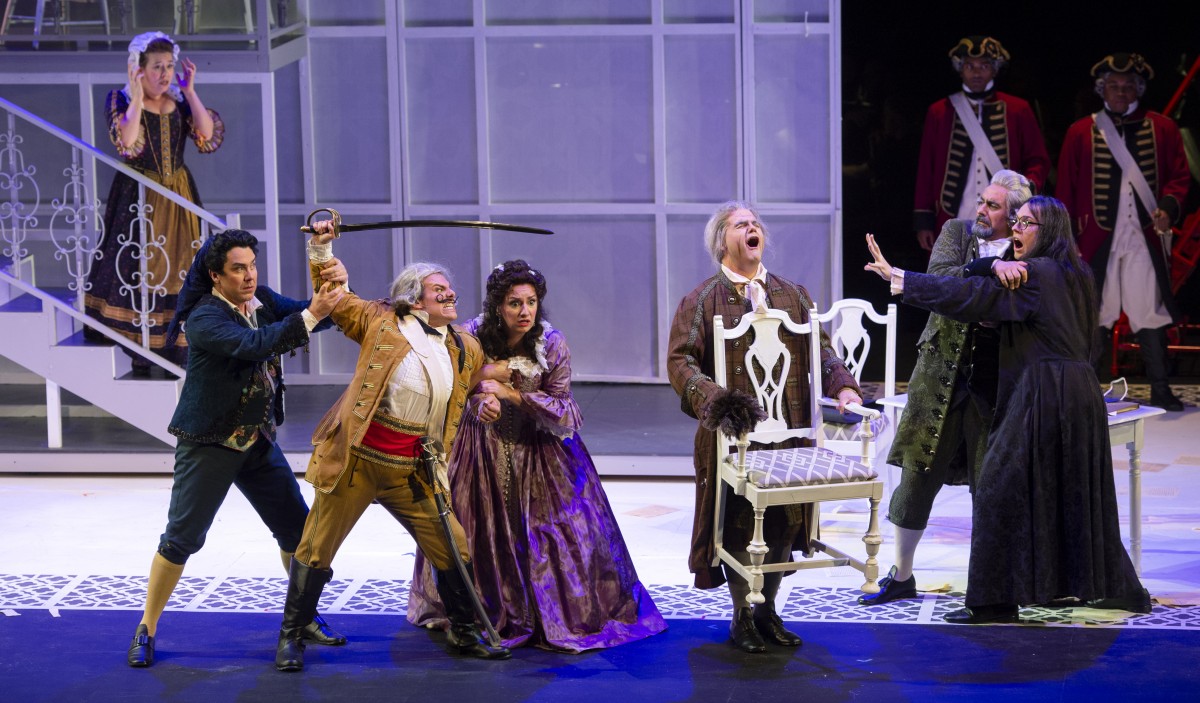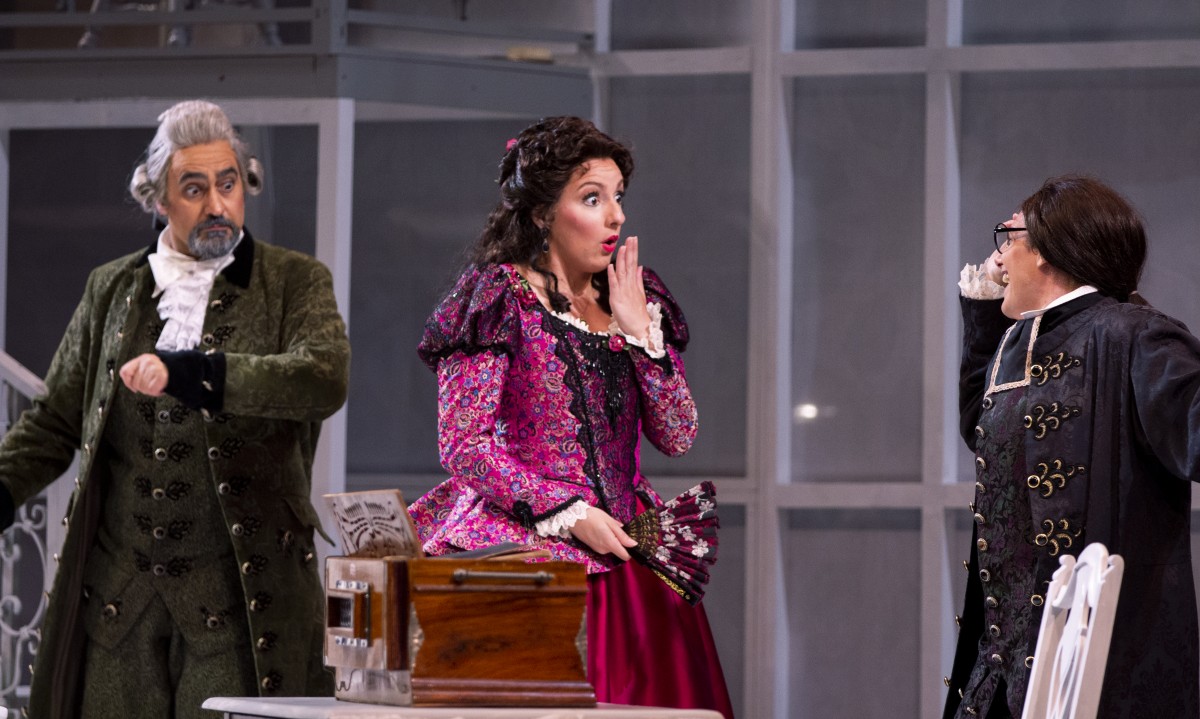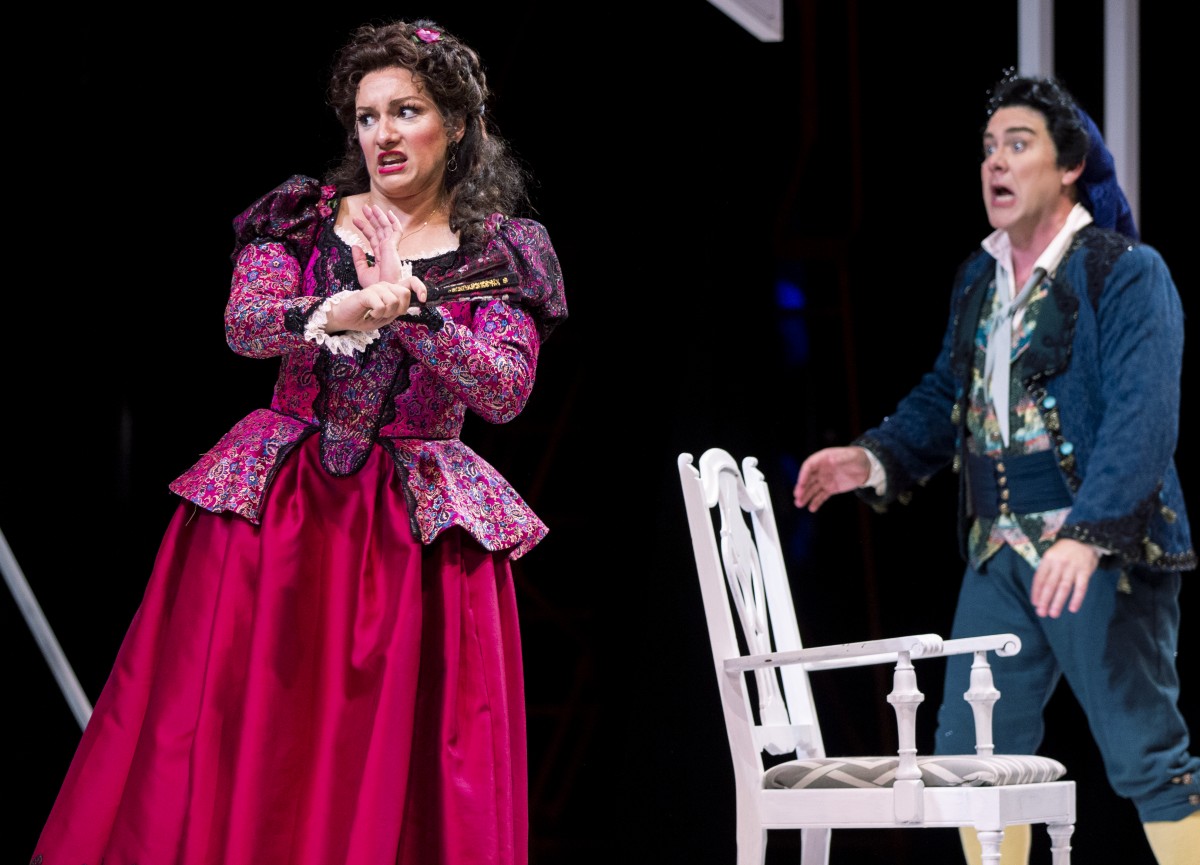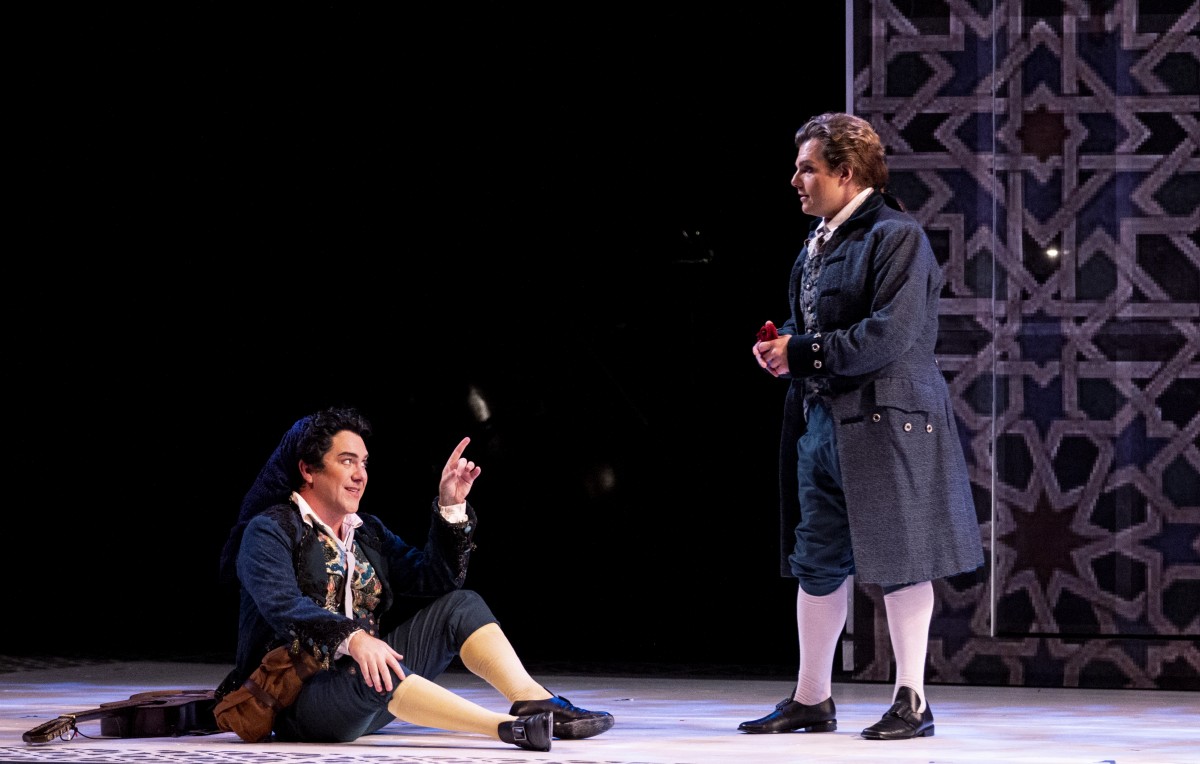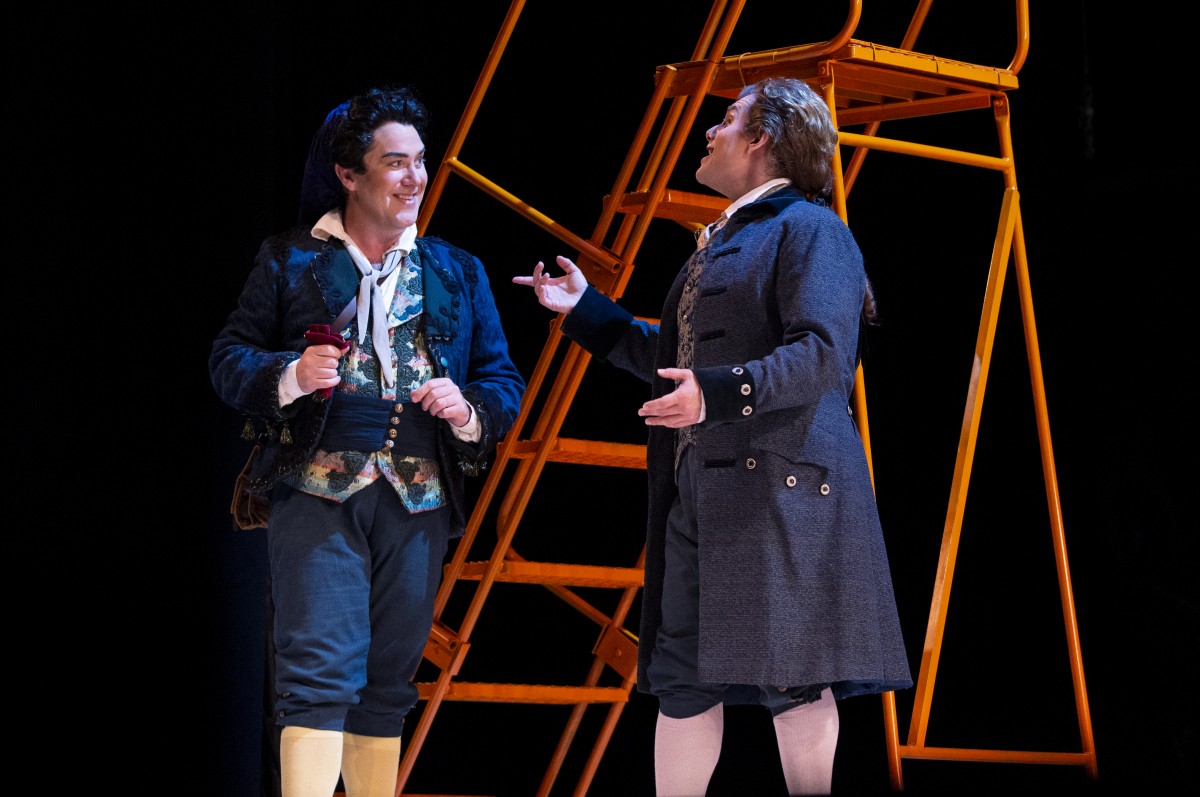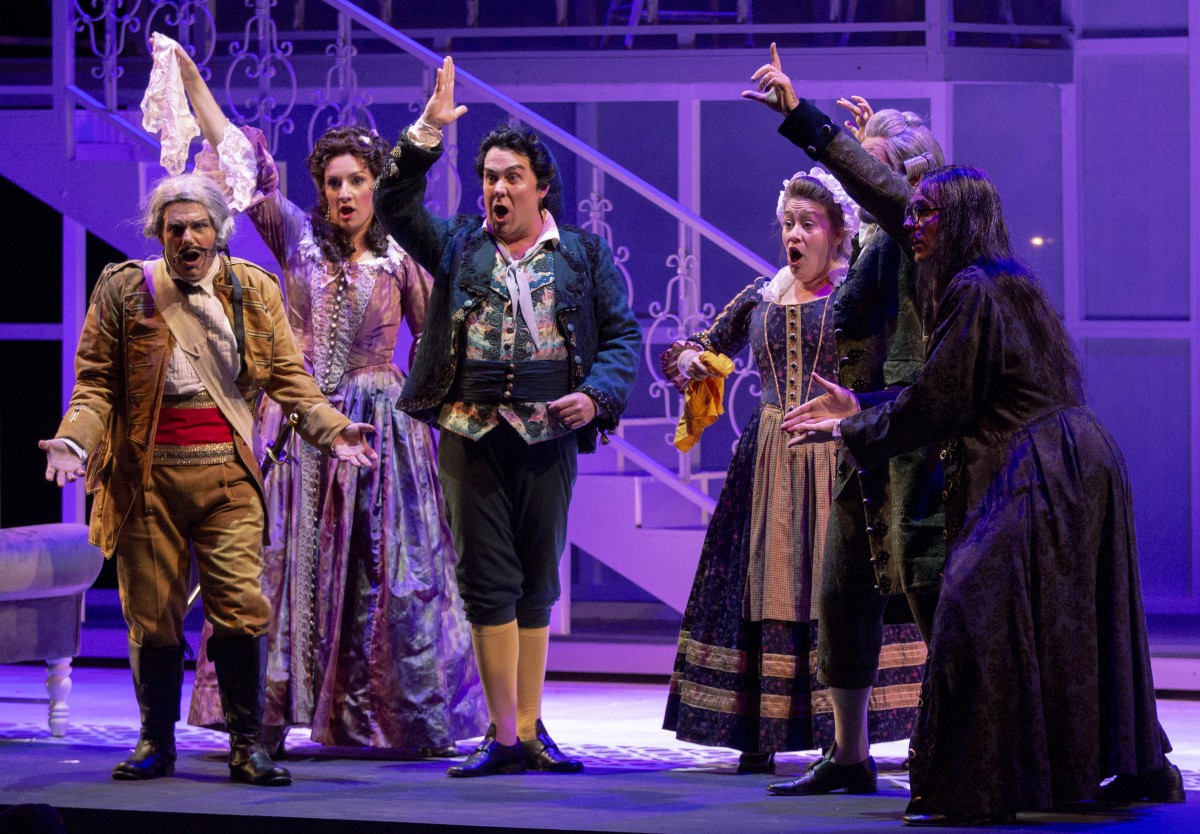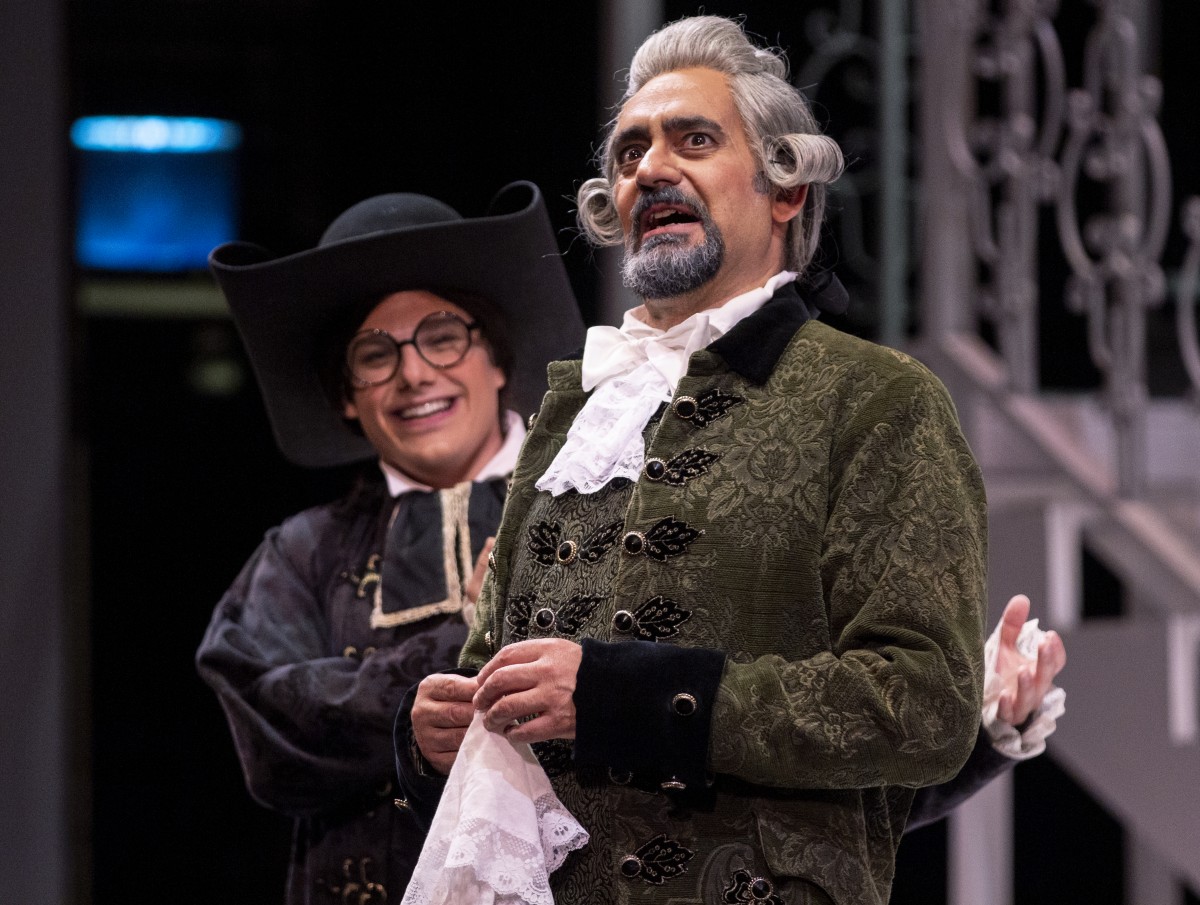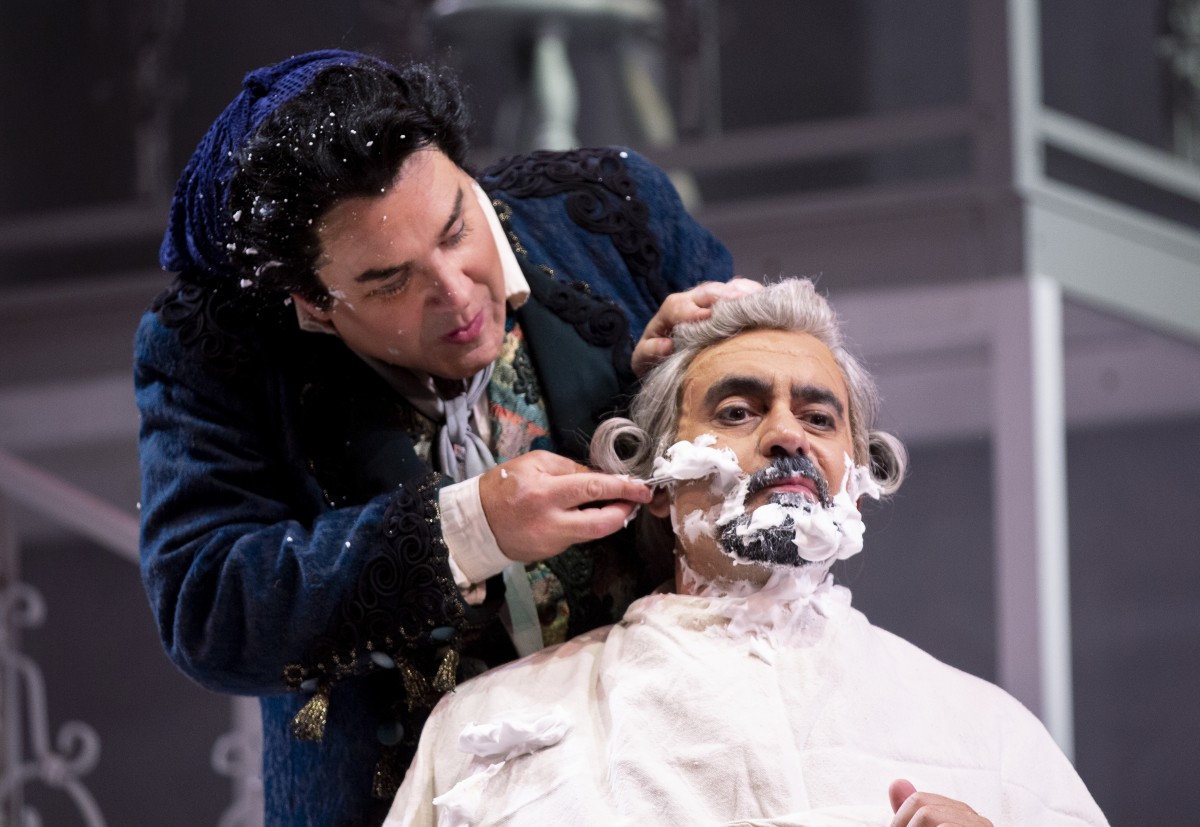Guest Critic: Arthur Kaptainis
Il Barbiere di Siviglia, or The Barber of Seville, is given around the world, and often, simply for the sake of its amusing libretto, its musical high spirits and the box-office success these two virtues in tandem guarantee. This summer, Chautauqua Opera Company has provided a context for Rossini’s beloved romp of 1816, by organizing a trilogy of “Figaro” presentations, including ¡Figaro! (90210) — an abridgment and updating of Mozart’s The Marriage of Figaro — and John Corigliano’s grandly scaled comedy The Ghosts of Versailles, which is slated for a single performance at 8:15 p.m. July 27, in the Amphitheater.
How these works might compare and contrast is a question for those who see them all. On Friday, I found myself enjoying Barbiere in Norton Hall mostly for the time-honored reasons. This is an opera that succeeds by not taking itself seriously, and while director Kathleen Smith Belcher promised social commentary in her program note, she mostly let the situations and conflicts inherent in the text (and the original play by Pierre Beaumarchais) speak and sing for themselves.
The set by Alan Muraoka was a simple but fanciful flat on wheels. A lattice pattern with hidden door and window did nicely for the exterior of the dwelling where Dr. Bartolo keeps his ward, Rosina, isolated from rival suitors. The opposite side was equally evocative of the interior to which she is confined. Period costumes by Howard Tsvi Kaplan confirmed the 18th-century (or perhaps even 17th-century) setting, even if a contemporary, moveable staircase of the type you might see in a warehouse added an ironic utilitarian note.
Musicians under Steven Osgood were positioned not in the pit but upstage. If somewhat careful tempos consequently prevailed — the singers taking their cues from video monitors at each side — there was compensation in the richness of the orchestral sound.
The configuration also brought characters closer to the audience. Nevertheless, Figaro entered from the rear of the theater and down an aisle. This “surprise” is now almost as common as a standard walk-on. There were, inevitably, some shifts in tonal perspective as bright-voiced Daniel Belcher, after handing out business cards to members of the audience, found himself lying flat on his back. Still, “Largo al factotum,” the most famous of all baritone arias, had its usual invigorating effect.
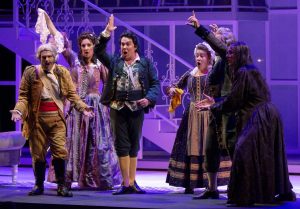
As did the opera’s second-greatest hit, “Una voce poco fa.” Aleks Romano, a talented actress making her Chautauqua Opera debut, convinced us of Rosina’s proto-feminist credentials with her earthy tone alone. This was a mezzo-soprano with gusts to contralto, the kind of voice many believe Rossini preferred. Ornaments were appropriately abundant even if intonation was not ideally secure.
Baritone Marco Nisticò, another debutant, was surprisingly virile as Rosina’s guardian and captor. Generally, Bartolo is played as an elderly buffo caricature. This trim physician of middle age seemed less a chump than a threat. Don Basilio, amusingly realized by the resonant bass-baritone Michael Colman was, by comparison, an even less useful collaborator than usual.
Much of what might be called lyrical relief in this upbeat score resides in the music of Count Almaviva, who wishes to woo Rosina romantically as a poor student rather than a nobleman with obvious advantages to offer. Tenor Blake Friedman, not in mellifluous voice on this particular afternoon, nevertheless shaped his serenades lovingly. Credit him also with a funny falsetto during the “music lesson” of Act II. Baritone Yazid Gray as Fiorello and soprano Kaitlyn Stavinoha sang their supporting roles, Fiorello and Berta, with admirable focus. Both are newcomers to the company. Carol Rausch prepared the capable chorus.
There were a few small departures from the libretto. The serenading musicians backing up the Count in the opening scene persist in their excessive expressions of thanks not because they are overpaid but because they are not paid. A pre-Revolutionary premonition of class warfare? Very well, but one of Almaviva’s core qualities is his indifference to money.
Not that Barbiere demands strict adherence to detail. It is, in its way, a delightfully incohesive piece. The picturesque storm scene of Act II has no dramatic function. One of many laughs enjoyed by the crowd was Bartolo’s abrupt “No,” in response to Basilio’s proposal that a campaign of slander was the best way of forestalling Almaviva’s advances on Rosina. So much for this character’s signature aria! There are even scornful words in the text for opera itself. The genius of Barbiere is that it defies and confirms the criticism with action that is ridiculous but irresistible.
The Chautauqua production — surprisingly, the first of this favorite since 2000 — is true to its fun-loving spirit. There are dizzying strobe effects and stop-action sequences in front of a giant clock that reminds us of the inevitable march, usually forward, of time. Physical comedy was ample but not intrusive.
An electronic keyboard was pressed into service (alas, quite visibly, stage left) as a harpsichord. All the same, the opening performance sent all away happy. There are repeats at 7:30 p.m. tonight in Norton, and again on July 25.
The production is dedicated to the memory of the noted bass Spiro Malas, a stalwart of the Chautauqua stage and faculty who died on June 23 in New York. A note in the program offers thanks “for everything he has given to opera.”
Arthur Kaptainis is the classical music critic for the Montreal Gazette and formerly for The National Post. He also writes for Ludwig van Toronto and Classical Voice North America. Kaptainis is a member of the board of the Music Critics Association of North America.


